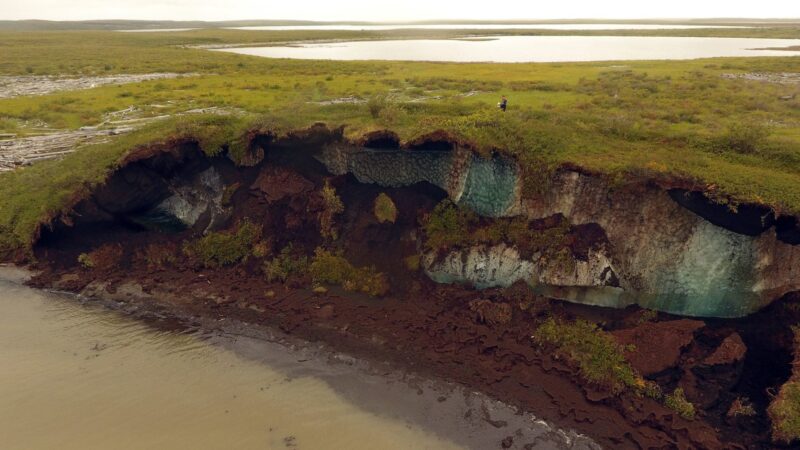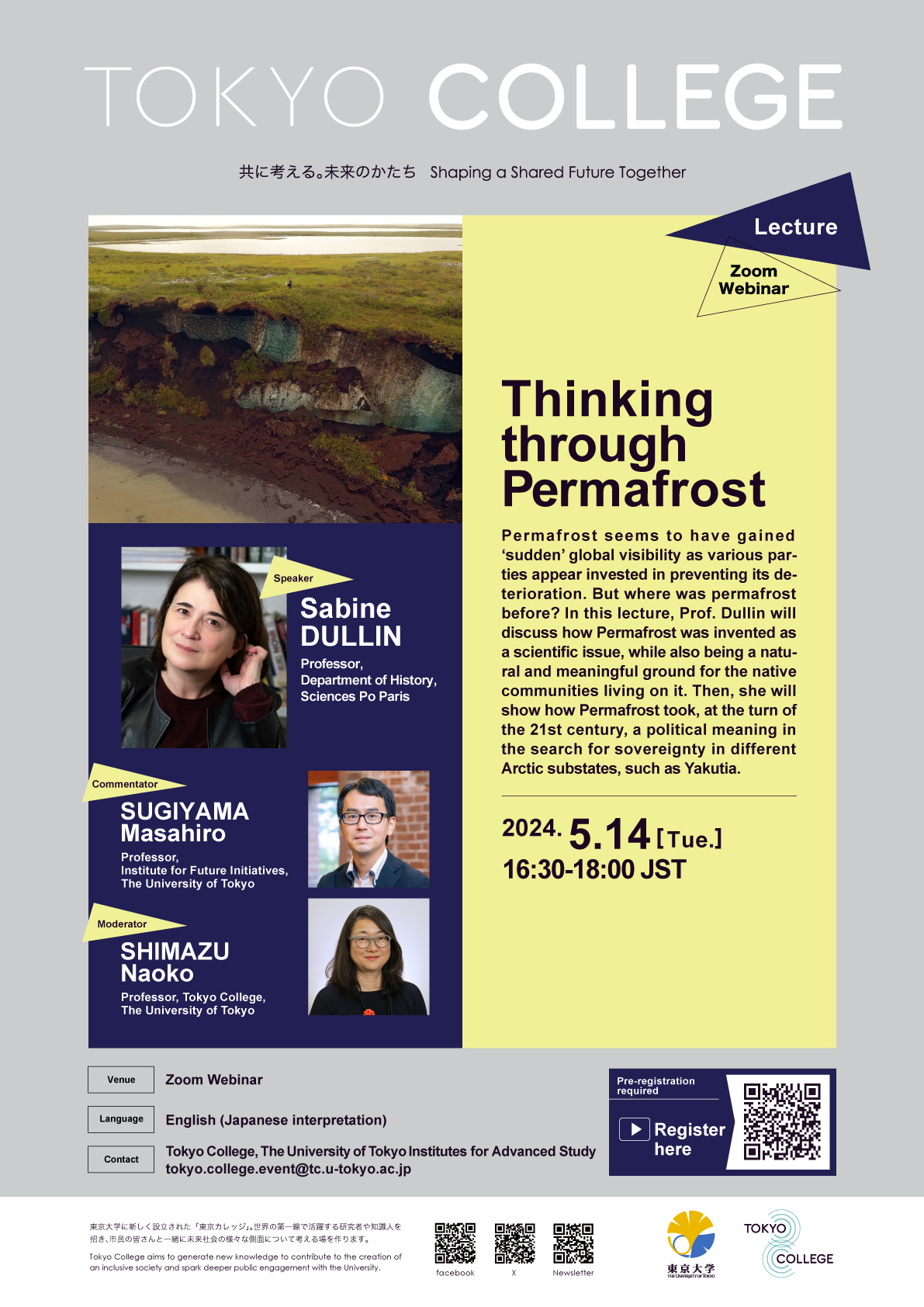Thinking through Permafrost (Lecture by Prof. Sabine DULLIN)

| Date(s) | Tuesday, 14 May, 2024, 16:30-18:00 JST |
|---|---|
| Venue |
Zoom Webinar (Register here) |
| Registration | Pre-registration required |
| Language | English (Japanese interpretation) |
| Abstract |
Today, permafrost undergoes a remarkable revival. Journalists, scientists, citizens, and politicians — everyone appears to be invested in preventing the deterioration of this Arctic ground. What unites these emerging accounts of permafrost is an acknowledgement of its ‘sudden’ global visibility. One gets the impression that permafrost has not been a matter of concern up until very recently. But where was permafrost before? As an historian and specialist on the history of Russia and the Soviet Union, Prof. Dullin is interested in discussing how Permafrost was invented as a scientific issue and, at the same time, how it was a natural and meaningful ground for the native communities living on it. Then, she will show how Permafrost took, at the turn of the twenty-first century, a political meaning in the search of sovereignty in different Arctic substates, such as Yakutia. |
| Program |
Lecturer Sabine DULLIN (Professor, Department of History, Sciences Po Paris) Commentator SUGIYAMA Masahiro (Professor, Institute for Future Initiatives, The University of Tokyo) Moderator SHIMAZU Naoko (Professor, Tokyo College, The University of Tokyo) |
| Speaker Profile |
Sabine Dullin, PhD, is full professor at Sciences Po Paris and a historian of modern Russia and the USSR. She’s interested in a de-centered history of politics and investigating the idea of ecological sovereignty in the Arctic. She teaches at Sciences Po, contemporary history and the history of Russia and the Soviet Union as Empires for undergraduate |
| Organized by | Tokyo College, The University of Tokyo |
| Contact | tokyo.college.event@tc.u-tokyo.ac.jp |
















